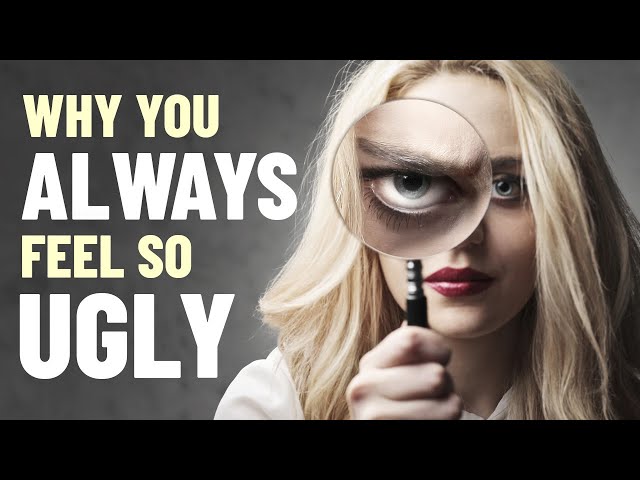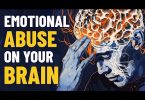It’s deeply unsettling when you look in the mirror and feel dissatisfied with what you see. But these feelings don’t just come out of nowhere; they are often the culmination of several deep-seated factors, blending personal experiences with societal pressures that collectively impact how you see yourself. And, trust me, you’re not alone. This struggle transcends age, gender, and culture, touching on universal insecurities that many face in their journey through life. Feeling unattractive can profoundly impact one’s mental health and overall well-being. And this affects everything from social interactions to professional opportunities and personal relationships. By unpacking the reasons behind these feelings, you can start to challenge and change the negative beliefs that hold you back from appreciating your own unique appeal. Let’s explore in detail why these feelings might occur in the first place.
Number 1 – Bullying or Teasing
If you were ever bullied or teased about your appearance, those experiences might still be influencing how you see yourself today. Being subjected to hurtful comments, especially during vulnerable developmental stages like childhood and adolescence, can set the foundation for ongoing self-esteem issues. Bullies often target perceived physical shortcomings, exacerbating insecurities and implanting a negative self-image that feels almost impossible to shake off. Healing only begins once you understand that these comments were never an accurate reflection of your worth, and you learn to view yourself through a lens of kindness rather than criticism.
Number 2 – Media Influence
Media often shows us beauty and attractiveness through a very narrow lens, featuring highly curated visuals that set standards most of us just can’t meet. The truth is, many of these images are the result of professional editing techniques, makeup, and lighting, all crafted to create an illusion of perfection that hardly resembles what real people actually look like. This constant barrage of unrealistically perfect faces and bodies can easily make you feel like you’re not measuring up. With this relentless stream of idealized images, it’s super important to keep a cool head and question the reality behind these beauty standards. Realize that achieving these looks isn’t just difficult; it’s often impossible and, more importantly, not necessary for your happiness or success. Learning to spot the tricks behind these images can help you avoid taking them to heart.
Number 3 – Aesthetic Choices That Don’t Suit You
Sometimes, the way you dress or style yourself might not reflect or enhance your natural appeal. An unflattering haircut, makeup that doesn’t suit your face, or clothes that don’t compliment your body type can make you feel less attractive. The good news is that this is a relatively easy fix. You can consult with a stylist or experiment with various looks to figure out which choices work best for you. This process will help you develop a personal style that boosts your confidence and ensures that your external appearance aligns with how you feel on the inside.
Number 4 – Body Insecurities
Focusing on certain physical traits you dislike can drastically distort your self-perception. Maybe you think you’re too tall, too short, too thin, or too big. Perhaps it’s a specific feature like your ears, your teeth, or the way your eyes are spaced. These insecurities often get magnified by our own critical eye, to the point where they overshadow all the other aspects of our appearance that others actually admire. Addressing these insecurities requires a multi-faceted approach. This includes acknowledging the diversity of body shapes in the real world, engaging in activities that make you feel strong and healthy, and practicing self-compassion. Remind yourself regularly that attractiveness is not a one-size-fits-all concept. This shift in perspective can be transformative and will help you build a more positive and accepting relationship with your body.
Number 5 – Stress and Exhaustion
Chronic stress and exhaustion can take a toll on you physically. It makes you look tired and worn out and certainly affects how you feel about yourself. You might notice physical signs of stress like bags under your eyes, dull skin, or a generally lethargic appearance. These can make you feel less vibrant and attractive. Moreover, mental exhaustion can make it harder for you to keep up with positive self-care habits, and that just messes even more with your self-perception. To tackle these issues, find ways to effectively manage stress, get enough rest, and make self-care a priority. These steps are fundamental for your physical health, as well as how you see and feel about yourself.
Number 6 – Dependence on External Validation
If your self-esteem largely depends on external validation, you know… compliments, likes, or public recognition, you may start to feel unattractive when these affirmations are scarce. Social media platforms, where feedback is immediate and quantifiable, can exacerbate this reliance and make it challenging to feel good about yourself unless you’re consistently being validated by others. This cycle can be destructive. It sets up a situation where your sense of attractiveness and worth fluctuates based on external opinions rather than your own self-assessment. To counter this, you’ll want to develop a sense of internal validation. And you can do this by appreciating yourself for your intrinsic qualities like kindness, intelligence, creativity, and resilience.
Number 7 – Past Rejections or Failures
Experiencing rejection or failure can leave a mark, especially if you think they’re linked to how you look. It’s hard not to take it personally; but remember, rejections are usually about a lot more than just appearance. They can be influenced by a myriad of factors such as timing, personal preferences, chemistry, or even the other person’s mood and circumstances. Realizing that these experiences don’t define you is necessary for overcoming feelings of inadequacy. Every rejection is an opportunity to grow and refine your understanding of what you truly value in relationships or other pursuits. By focusing on your strengths and learning from each incident, you can build a more positive self-image.
Number 8 – Not Being Photogenic
Just because you don’t always look great in photos doesn’t mean you aren’t attractive in real life. The truth is, being photogenic is really about how your features are captured by the camera, which can vary significantly. Factors like lighting, the angle of the shot, and your expression at the moment can all drastically influence how you appear in a photograph. These elements can either enhance your features or, unfortunately, fail to capture your true charm. Don’t forget, a photo is just a snapshot; a brief moment frozen in time, often taken under conditions that are far from ideal. Learning to separate your self-worth from how you appear in pictures can help you maintain confidence in your real-life appearance.
By addressing the underlying reasons for why you might feel unattractive, you can begin to dismantle these negative perceptions and develop a more positive and realistic view of yourself. Embrace your individuality, nurture your self-esteem, and allow yourself to appreciate the unique appeal you possess. It’s all about being comfortable in your own skin and valuing yourself beyond superficial standards.







Leave a Comment